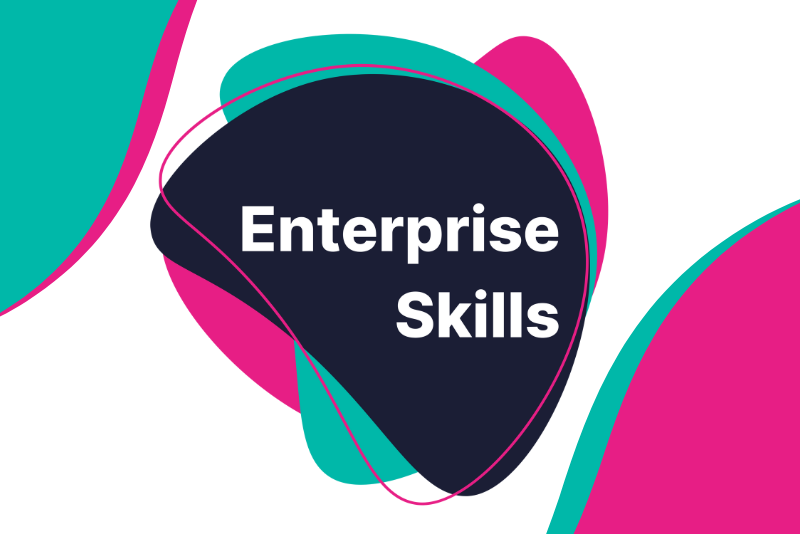Providing students with clear pathways to success in business and economics is crucial. As members of the Senior Leadership Team (SLT), your role in guiding students through their academic and career choices is pivotal. This resource offers a comprehensive overview of Business and Economics Academic Careers, equipping you with the information needed to support effective career guidance.
Understanding Business and Economics Academic Careers
Business and economics are fields rich with opportunities, offering diverse career paths and roles that require a blend of theoretical knowledge and practical skills. As SLT, understanding these pathways helps in crafting a curriculum that not only meets academic standards but also aligns with real-world demands.
Key Entry Requirements
- GCSE and A-Level Choices: Strong foundations in mathematics and English are essential. Subjects like Business Studies, Economics, and Accounting are advantageous.
- University Admissions: Most universities require A-levels in relevant subjects. High-ranking institutions may also look for additional qualifications or extracurricular involvement.
Ensuring students are aware of these requirements early on can help them make informed decisions about their subject choices, aligning their academic journey with their career aspirations.
Progression Routes in Business and Economics
Progression in business and economics can take various forms, from academic advancement to entering the workforce. Here’s how you can guide students:
- Undergraduate Degrees: Courses in Business Administration, Economics, Finance, and Management are popular. Encourage students to explore joint honours for a broader perspective.
- Postgraduate Opportunities: MBA programs and specialised master’s degrees in areas like International Business or Economic Policy can enhance career prospects.
- Professional Qualifications: Certifications from bodies like ACCA, CIMA, or CFA can be valuable for students interested in finance and accounting.
Highlighting these routes helps students understand the potential paths they can take, fostering a proactive approach to their education and career planning.
Economics Skills Development
Developing key skills in economics is vital for student success. These skills not only aid in academic achievement but are also highly valued in the workplace:
- Analytical Skills: Encourage activities that involve data analysis and interpretation. Real-world case studies can be particularly effective.
- Critical Thinking: Promote classroom debates and problem-solving exercises that challenge students to think critically about economic issues.
- Communication: Effective communication is crucial. Incorporate presentations and group projects into the curriculum to build these skills.
By focusing on these areas, you can ensure that students are not only prepared for exams but also for the challenges of the business world.
Business Career Guidance and Employment Opportunities
Providing students with robust career guidance is essential for bridging the gap between education and employment. Here’s how you can support this transition:
- Work Experience: Facilitate placements and internships in local businesses. This practical exposure is invaluable for students.
- Networking Opportunities: Organise events with industry professionals. This can help students build connections and gain insights into their chosen fields.
- Career Workshops: Host workshops that focus on CV writing, interview skills, and job search strategies.
These initiatives not only enhance student confidence but also align with Gatsby Benchmarks 5 & 6, ensuring comprehensive career guidance.
Real-World Applications and Case Studies
Integrating real-world applications into the curriculum can significantly enhance learning outcomes. Consider the following approaches:
- Case Studies: Use current business scenarios to illustrate economic principles. This approach helps students understand the practical implications of their studies.
- Guest Lectures: Invite industry experts to share their experiences. This can provide students with a firsthand look at career opportunities and challenges.
- Project-Based Learning: Encourage students to undertake projects that solve real business problems. This method fosters innovation and practical skill development.
These strategies not only make learning more engaging but also prepare students for the complexities of the business environment.
Conclusion: Empowering Informed Decisions
By providing accurate and current guidance on Business and Economics Academic Careers, you empower students to make informed decisions about their futures. This approach not only connects classroom learning to real-world applications but also opens doors to a myriad of opportunities. As SLT, your support in implementing these strategies is crucial for driving student progression and achieving school-wide impact.
Next steps include reviewing your current career guidance programs, identifying areas for enhancement, and integrating these insights into your strategic plan. By doing so, you ensure that your students are well-equipped to navigate the dynamic world of business and economics.






